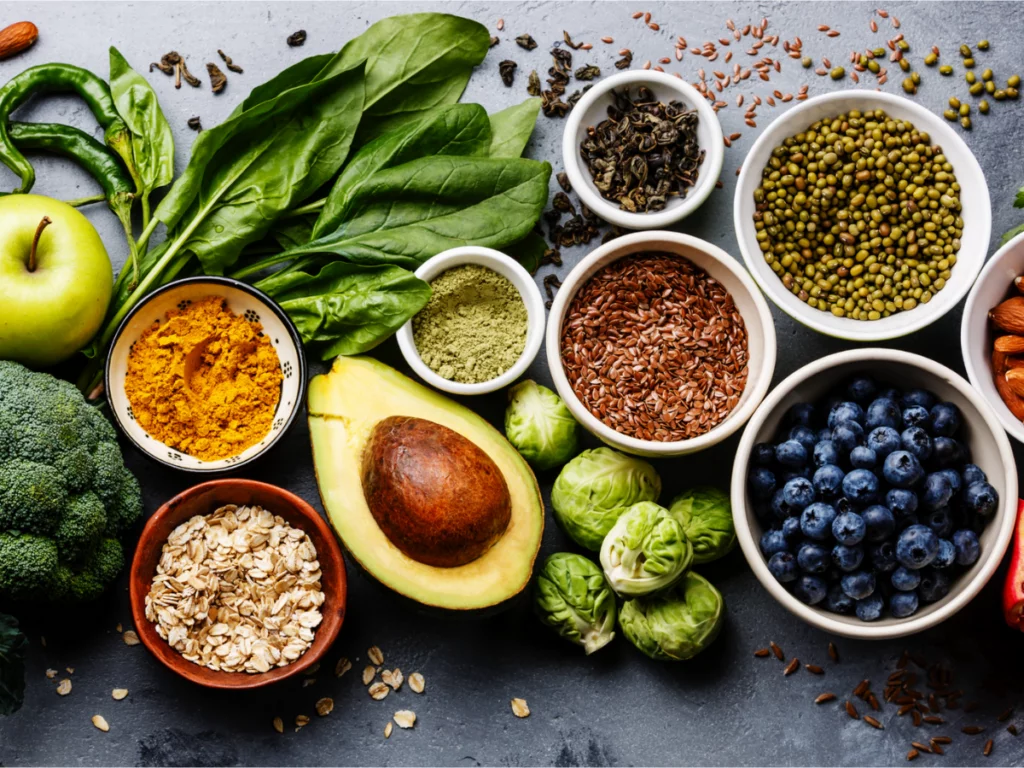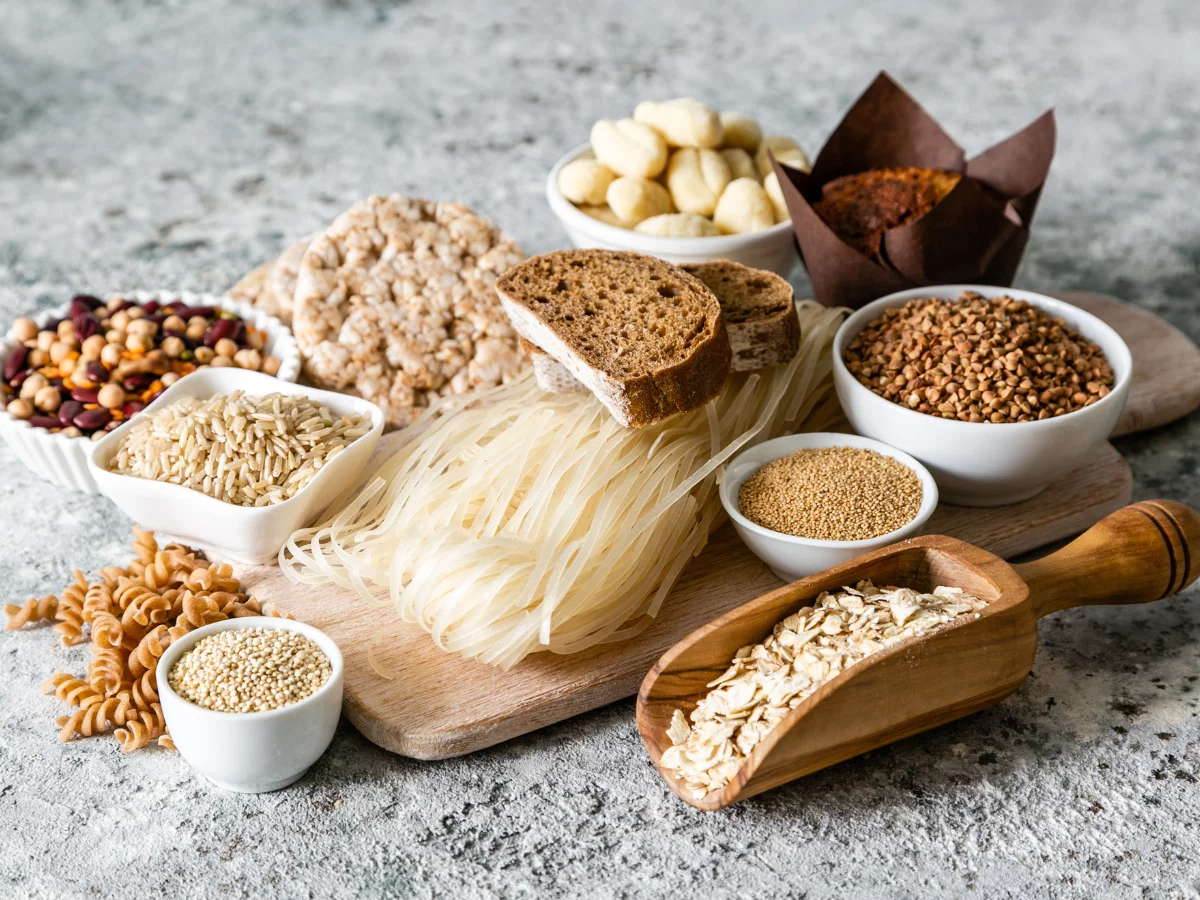In the last decade, superfoods have soared in popularity and remain one of the key nutritional trends. We see the word all over food packaging, and thousands of nutritionists and influencers alike share their love for their favorite superfoods and the alleged benefits. Research findings have been published indicating they’re better for our skin, can increase our libido, and can even boost our immune systems, too.
Many “superfoodsâ€, such as berries and kakadu plums are rich in Vitamin C, which plays a key role in the body’s healing process and maintaining healthy skin and bones. Brain health can also be improved by the consumption of some superfoods, and certain foods can also lower LDL (bad) cholesterol levels, according to Harvard Medical School.
Superfoods are often full of fiber, which can help to keep us feeling fuller for longer, leading to a healthier diet and potentially reducing obesity levels.
There’s also been a major jump on Google too, and last year has seen a significant rise in searches for superfood recipe ideas, including:
- 52% rise in searches for “superfood saladâ€
- 100% rise in searches for “superfood ideasâ€
- 300% rise in searches for “superfood banana breadâ€
What is a superfood?
But what makes a food “super� After all, there’s lots of food items that are rich in vitamins that aren’t grouped in with the foods that seem to sit on a pedestal, such as broccoli, mushrooms and even potatoes.
Superfoods are, arguably, simply food items that claim to have significant health benefits – and often, when you’re buying one, you’ll know about it from the labeling.
Some of the foods most commonly classified as superfoods are:
- Blueberries
- Chia seeds
- Kale
- Spinach
Can I be sensitive to superfoods?
Superfoods are often recognized for their antioxidants and anti-inflammatory properties, which can help to reduce chronic inflammation and bloating. But for millions of Americans with a food sensitivity, they could be doing the exact opposite.
Certain superfoods can trigger adverse reactions in individuals who are sensitive to that specific ingredient. Consuming foods you are sensitive to triggers an immune response and IgG antibodies are released. Raised IgG antibodies have been linked to symptoms like IBS and bloating through to skin problems, headaches and fatigue.
However, the foods someone is sensitive to will always vary from person to person – each person’s body chemistry is different. This makes it almost impossible to classify any food as universally ‘good for you’ – even superfoods!
An analysis of food sensitivities in America
YorkTest has analyzed over 12,000 food sensitivity test results to reveal that almost 9% of people are sensitive to at least one superfood. That’s equivalent to almost 30,000,000 people across America.
According to our research, there’s a number of superfoods that are more likely to cause a reaction than other items. But what are they?
1 – Chia Seeds – 27 million Americans
YorkTest saw an 8.7% reaction rate in tests for chia seeds. When extrapolated across America, that’s approximately 27,135,300 people.
Chia seeds may be small, but they are packed full of nutrients, containing minerals, fiber and omega-3 fatty acids. They’re regularly touted for their health benefits, but with possibly almost one in ten Americans having a sensitivity to them, it may be worth re-evaluating your diet if you’re experiencing symptoms of a food sensitivity.
2 – Goji berries – 23 million Americans
YorkTest found that 7.4% of tests showed a reactivity to goji berries – the equivalent of 23,080,600 people in the United States.
Goji berries contain a huge amount of vitamins A and C, like other berries. However, they’ve been promoted into the superfood league due to their large levels of antioxidants, which may help fight cancer cells and prevent UV light damage. Yet while they have good anti-inflammatory properties, goji berries are one of the most common foods that people are sensitive to.
3 – Flax/linseed – 16 million Americans
One in 20 (5.2% of tests) Americans showed a reactivity to flax or linseed – which estimates at around 16,218,800 people.
Linseed or flaxseed is loaded with nutrients, and people are often recommended to take one tablespoon to pack a punch in terms of getting your nutrients. It includes Omega-3 fatty acids and Vitamin E, which can also help to nourish your hair.
Flaxseed is a common breakfast item – whether you add it to the top of your cereal, yoghurt, or muffins, however others may add it into smoothies or even in a sandwich. Others might even use linseed oil – an alternative to traditional vegetable oil. According to Allergy Los Angeles, flaxseed is an emerging allergen in the US.
4 – Cranberry – 5 million Americans
In what could be bad news for some ahead of Thanksgiving, 1.2% of tests (5,302,300) showed a reactivity to cranberries.
Cranberries and cranberry juice contain essential vitamins and antioxidant properties. According to WebMD, one cup has 25% of your daily requirement of vitamin C, 9% of vitamin A and 6% of your daily requirement of vitamin K. Another study found that cranberries have the most amount of phenol (an antioxidant) than any other common fruit in the US.
Yet when you’re eating your cranberry sauce over the dinner table, and you find that hours or days after you’re experiencing stomachache or low energy, it could be a sensitivity.
5 – Green tea – 3 million Americans
Despite the huge nutritional value of green tea, YorkTest found that 1.2% of tests showed reactivity – around 3,742,000 Americans.
Green tea is good for digestive health, improving cholesterol levels, and also includes a nutrient called polyphenols – which contain powerful antioxidants. It can also lower blood pressure and reduce risk of viral infections.
It’s worth noting that a food sensitivity should not be confused with a food allergy. Whilst symptoms of a sensitivity can impact quality of life, they are not life-threatening and are typically less severe than allergy symptoms. If you’re experiencing a response to food or drink which causes difficulty breathing or swallowing, it’s important to seek immediate medical attention.
How do I know if I’m intolerant to a superfood?
If you’re currently experiencing any of the symptoms mentioned and are concerned that you might have a sensitivity to one of the items listed in this report, consider taking a food sensitivity test to establish if you should consider changing your diet and seeking professional nutrition advice, or if your symptoms could be due to something else.
It’s important that you consume foods that help you to feel good – even if they’re not branded as a “superfood.†Consume a balanced diet that contains vegetables, fruit, whole grains and healthy fats and proteins, and ensure that you’re regularly drinking water.
What are the common symptoms of a food sensitivity?
Food sensitivities can cause a number of symptoms and will vary depending on your individual circumstances. If you’re currently experiencing any of the below symptoms, especially in the day or days after consuming superfoods, it’s worth considering a food sensitivity test:
- Digestive issues and diarrhea
- Fatigue
- Gas or bloating
- Headaches or migraines
- Heartburn
- Joint pain
Those with other conditions such as eczema, IBS and asthma may also find that a food sensitivity to certain foods can make them worse, and food sensitivities can even make it more difficult to maintain a healthy weight, too.
Superfood substitutes
If you find you have a sensitivity to any of the items listed above, and are looking for something similar to satisfy your tastebuds, take a look below:
1 – Instead of cranberries, try:
- Raspberries
- Pomegranates
- Strawberries
2 – Instead of chia seeds, try:
- Quinoa
- Sesame seeds
- Pumpkin seeds
3 – Instead of flaxseed, try:
- Hemp seeds
- Wheat germ
- Tofu
4 – Instead of goji berries, try:
- Blackberries
- Mulberry
- Dewberries
5 – Instead of green tea, try:
- Chamomile tea
- Peppermint tea
- Ginger tea.
Methodology
To understand how many people were sensitive to common superfoods, YorkTest analyzed more than 12,000 of its food sensitivity tests to find instances of sensitivities to 200 food and drink ingredients. The % of reactivity was then calculated against the population of America to work out an estimated figure of how prevalent that sensitivity may be nation-wide.








